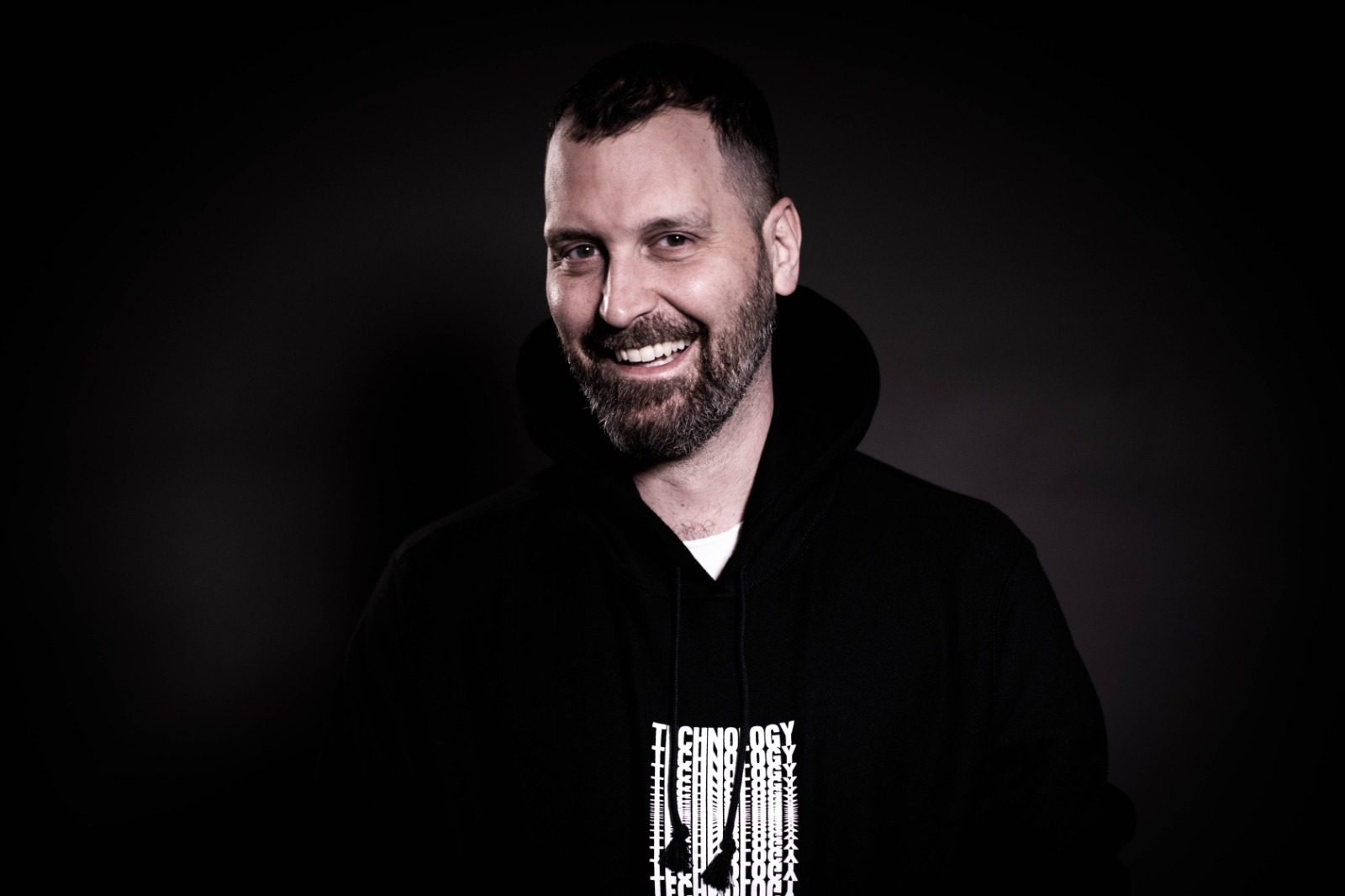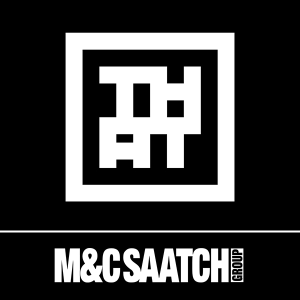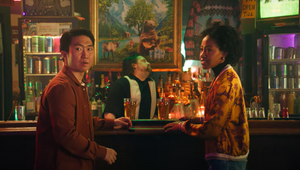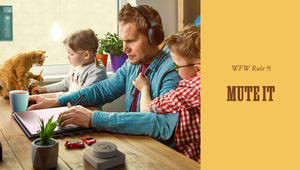
5 Minutes with… Nathan Phillips

Comedy brought Nathan Phillips to his career in advertising, and not in the traditional “oh I was an artist, but needed to pay the bills” kinda way. His comedy (which he will tell you more about below) was becoming more and more interactive and eventually he was working with the likes of MOMA in New York and various places in Las Vegas. “At the core,” he says, “it was all about interacting with an audience.” He was relying more and more on technology for his comedy work which, in his words, aligned brands’ needs to begin engaging with humans instead of just churning out information in more traditional media forms.
Fast forward to today and Nathan is the co-founder of Technology, Humans And Taste [THAT], a business that’s part of the M&C Saatchi Group that Nathan dubs “a prototype for a new type of creator-led business”. LBB’s Addison Capper caught up with Nathan for an enlightening chat about why creating art for a client is meaningful, why experiential isn’t dead - even in a pandemic - and a quite monumental sandwich that’s only available in the specific town he grew up in.
LBB> Where did you grow up and what kind of kid were you? Were you creative as a kid?
Nathan> I physically grew up in Fall River in Massachusetts, home to something called the Chow Mein Sandwich which I recommend you Google immediately. Creatively, I grew up nearby at AS220 in Providence, Rhode Island which is an arts complex with a black box theatre. I rehearsed and performed improv there throughout high school, but no one at school knew about it. It was a secret life, but in retrospect it was more educational than school.
LBB> Your career prior to advertising is pretty interesting! A life in comedy eventually took you to working in tech and then more directly with brands. Firstly, tell us about your comedy. How did you get into that? What kind of stuff did you do?
Nathan> My comedy would best be categorised as funny performance art. I did a show called ‘SEX YOU (I’m Gonna)’ in which I would ask for a volunteer at the top of the show, without saying what it was for. Then, I’d announce that we were going to have sex in front of everyone for the remainder of the show. The volunteer would then of course decline my invitation and I would spend the next hour trying ways to make myself more attractive. I performed every dance move I knew, read poetry, did a striptease. I wrote a book ‘The Unorthodox Haggadah’ (priced to sell at your favourite bookseller) which uses the structure of Passover to create an insane conversation about god, and satan, and heavy metal and weed and aliens. Along the way I collaborated on interactive projects in Vegas, for Blue Man Group, and at museums like MOMA. At the core it was all about interacting with an audience.
LBB> Outline your path from there to working with brands and technology. How did that opportunity arise? And why was it something that you stuck to?
Nathan> I began to rely on technology more and more in the work I was making. And that aligned with a need for brands to stop just distributing information in traditional media and actually start to engage with humans. I think of advertising as ‘art where you have to prove something’. For me, the craft hasn’t changed at all, I’m just able to connect to people on a much larger scale. At THAT, in addition to our client work, we’ve continued to make work independent of brands, but I love collaborating with clients. It’s hard, but when it’s successful, it’s art that proves something. Our job is to create desire for things people didn’t know they wanted. That’s cooler than just making something because I think it would be funny or beautiful.
I think art is a great way to escape reality, or help you process big questions, but people build their lives through the purchases they make. Advertising is real life and I want to help create additive experiences for people in the places they need it most. Great work shouldn’t rely on scraping personal data to hit a target, it needs to be something people choose to engage with.
LBB> Tell us about THAT. What inspired you to launch your own business? And what sets it apart from other agencies?
Nathan> Technology, Humans And Taste [THAT] is a prototype for a new type of creator-led business and that is how we’ve treated it. Rather than start a traditional agency, we’ve really focused on designing a way of working that forces us to innovate through collaboration using what we call ‘connected creativity’. Everything about THAT is built around the way we work. And the way we work is based around interacting with unfamiliar perspectives to inspire you to think of new ideas.
We’ve held a curated event every Friday at 4PM since we started. Open to everyone. We don’t take client calls after four and it’s mandatory for every THAT human and freelancer to join. We have a curator who invites new people every week and thousands of people have come. Every attendee generates an original idea in collaboration with other people on the call. By building that creative community we’ve been able to develop a methodology that brings outside voices into every brief. And I don’t mean we survey them, I mean we collaborate and engage unfamiliar perspectives to push our ideas to new places. We don’t have a traditional creative department anymore, everything we make is a collaboration with people who would never work in traditional creative agencies.
LBB> What's a project that best defines the work THAT does and why?
Nathan> I’m always really proud when someone looks at our website and says: “The work is all amazing, but what EXACTLY do you specialise in?” My answer is that we focus on solving problems. And that requires us to make all sorts of work for all sorts of different audiences. I think one of the biggest problems with companies across media is that they operationalise around a platform or medium, and that limits their ability to creatively solve problems. We do whatever is needed to solve a problem for a company. Sometimes you need to make a film to connect to people, sometimes you need to drop them inside a virtual space. That should be defined by the idea, not the fact that you have more experience making one or the other.
LBB> Tell us about the new work you did for Signal. The advertising industry is obsessed with data, but here you are creating a campaign for a digital service that prides itself on its lack of data. I imagine that was quite the challenge?!
Nathan> The hardest challenges require the most creative solutions. Signal is an incredible non-profit organisation that is creating a safe space for people to connect and we believe that their commitment to not using people's personal data is not only admirable but a better vision for the world we want. We try to bring an ethical approach to the way we use data and finding a way to connect to users organically, without stealing data, has been an inspiring challenge for all of the work we do.
LBB> You wrote a thought piece claiming that "Experiential is not dead" even in the middle of a pandemic. Why?
Nathan> People are currently immersed in an ‘experience’ all day long. You are stuck in an interactive video trying to get out, this whole quarantine is an always on global escape room basically. I think the pandemic will make people smarter about immersive, tech-driven experiences and far more hungry to play in a mediated reality than before. An experience is anything that takes place in a mediated reality. It’s not online or offline, it’s somewhere in between. Whether it’s the little gags that you use to make a haunted house, lighting a room, or connecting through cameras and microphones - anything that involves technology to change our interaction is an experience. And honestly in today’s world, that’s everything.
LBB> What's most exciting about what you do right now?
Nathan> I’m excited that we’ve made it this far as a company and that we continue to grow our community. I feel strongly that our commitment to our vision of a collaborative creative company has made everything more challenging, because we’ve had to discover so much. But, the result is that each of us are forced to actually create ideas that are original. We really believe that the creative economy has become so focused on ‘reliable industry geniuses’ that they’ve boxed out the disruptive, the breakthrough and the weird and special voices that make people see something and say, “I want THAT.” And it’s exciting to be a part of changing that.
LBB> And most annoying?
Nathan> I wouldn’t ever equate my personal struggles during the lockdown with the absolute tragedies so many people have endured. But when it comes to work, I think that I have really struggled creatively with virtual shoots. In addition to a bunch of really cool client work, we shot a documentary during lockdown and it has been hard at times. I now have a serious setup for virtual presentations as well as a different rig for directing over the internet. It’s a huge pain in the ass, but with great collaborators and some of the tools we’ve designed we’re making it happen.
LBB> What keeps you inspired outside of work? And quirks or hobbies?
Nathan> I think hobbies are super important for creative professionals. Doing something you’re bad at is how you keep learning. To be honest, I think my job is my hobby. I really push myself and all of THAT to create work that pushes us out of our expertise and into the space of an advanced beginner, where we know enough to do the work, but are open to discovery as we go. I didn’t really answer the question… but I also read every night before bed and I like cooking.










